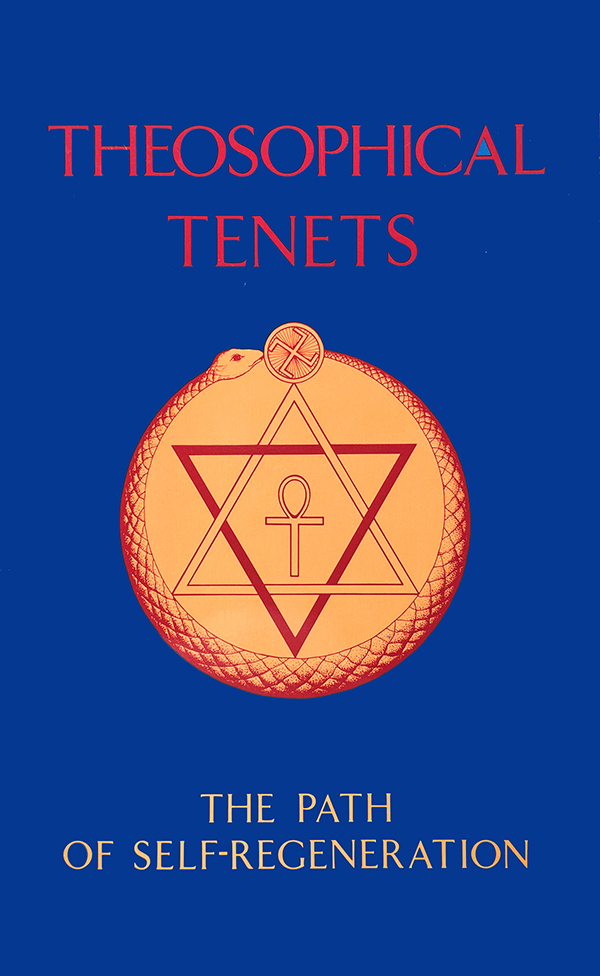Publications written or edited by Shri Raghavan Iyer
Theosophical Texts
THEOSOPHICAL TEXTS are aids to the creative imagination, fusing metaphysics and ethics, arousing spiritual intuition and awakening soul-memory. Gupta Vidya is the hidden golden thread behind Philosophia Perennis, the accumulated wisdom of the ages. Enshrined in the language of glyph and symbol, sutra and mantra, in the secluded sanctuaries of the time-honoured Mysteries, it provided a powerful stimulus to a galaxy of fabled, forgotten and surviving civilizations around the globe. The founders of the modern Theosophical Movement, H.P. Blavatsky and W.Q. Judge, brought the sacred inheritance of humanity within the reach of intrepid seekers of wisdom in our own time. With the dawn of the Aquarian Age there is a fresh concern with secular monasticism and a way of life based upon authentic use of ancient wisdom as noetic theurgy, of Gupta Vidya as Brahma Vach. The thoughtful essays in this series of volumes are invaluable for those seeking the path of spiritual self-regeneration in the service of humanity.
Available through Concord Grove Press
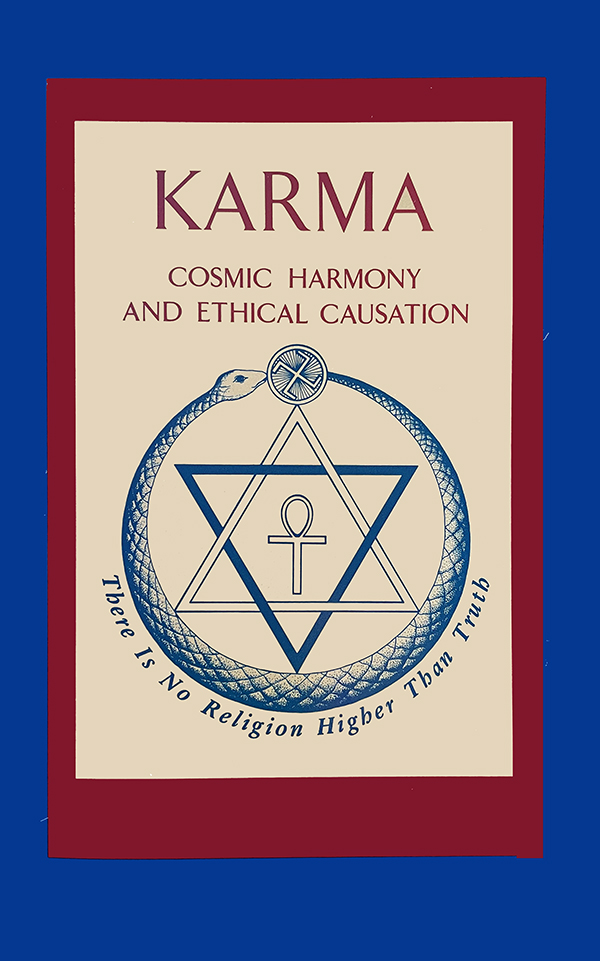
KARMA
Nine lucid essays, an apt selection from Sir Edwin Arnold’s The Light of Asia and a haunting story clarify karma, the cosmic law of ethical causation and moral retribution. The philosophical depth and practical implications of karma are placed in the compelling context of karmic residues over lifetimes and their effective transmutation.
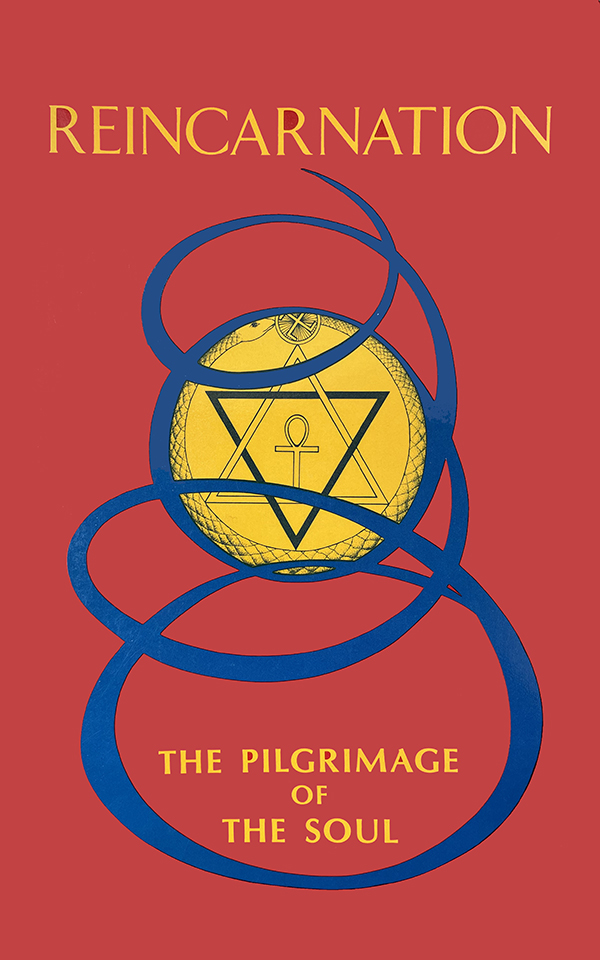
REINCARNATION
Reincarnation consists of eleven essays which elucidate the subtle and profound conception of rebirth and explain its practical implications for daily living. Essays by W.Q. Judge and Robert Crosbie set out the Theosophical teaching and resolve misunderstandings. H.P. Blavatsky provides a masterful exposition of post-mortem states which exhibits the compelling logic of reincarnation.
K.S. Lakshminarayan’s “Reincarnation and Silence” links speech, silence and creativity to show how fundamental transformations in consciousness are possible. Other essays suggest how the soul becomes trapped in time and limitation and how it can transcend them, and show the significance of reincarnation to man’s spiritual odyssey.
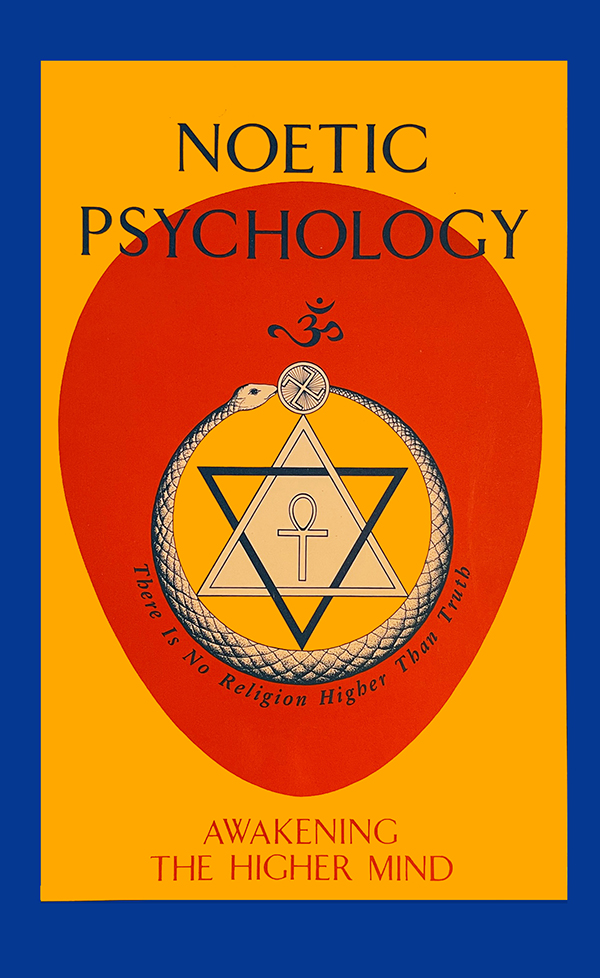
NOETIC PSYCHOLOGY
Noetic Psychology consists of sixteen essays which expound the nature and potential of consciousness from a universal and spiritual perspective. Ranging from discussion of after-death states to the dual nature of mind, from the subject-object distinction to criteria for truth, and from levels of consciousness to the value of meditation, each essay explores an aspect of human nature and offers practical suggestions for living one’s life on a sound basis. The volume includes H.P. Blavatsky’s definitive article, “Psychic and Noetic Action”, and two modem classics by K.S. Lakshminarayan on “The Mystery of the Ego” and “Noetic Discrimination”.
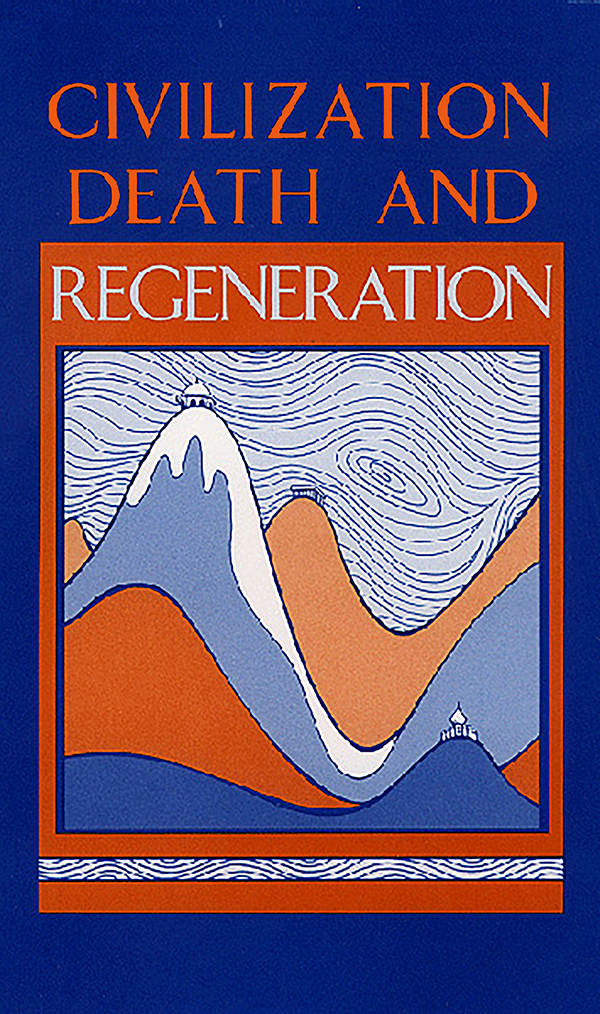
CIVILIZATION – DEATH AND REGENERATION
Twelve essays explore the ethical and spiritual predicament of modem civilization and indicate the directions in which civilization must be revitalized to serve the deeper needs of human souls. In two essays H.P. Blavatsky shows the complex contradictions inherent in modem thought and life.
Murdhna Jyoti indicates the interplay between individual choices and collective karma, whilst George William Russell points to the rekindling of perennial aspirations. K.S. Lakshminarayan deals with the inherited conceptions and the essential core of the seven deadly sins and, in a separate essay, provides a fresh standpoint in relation to historical trends and noetic causation. Also included are essays by W.Q. Judge, A.P. Sinnett, T. Subba Row and Robert Crosbie.
THEOSOPHICAL TENETS
Theosophical Tenets contains twenty-one selections from Theosophical literature which provide a lucid and coherent introduction to Gupta Vidya, the Perennial Philosophy of human perfectibility.
Arranged in three sections – God, Nature and Man, Man and the Cosmos, and The Path – each group is introduced with an illum inating essay by Raghavan Iyer. Together, these essays cover metaphysics and ethics, noetic thought and Theosophical psychology, reincarnation and immortality.
Available through Concord Grove Press
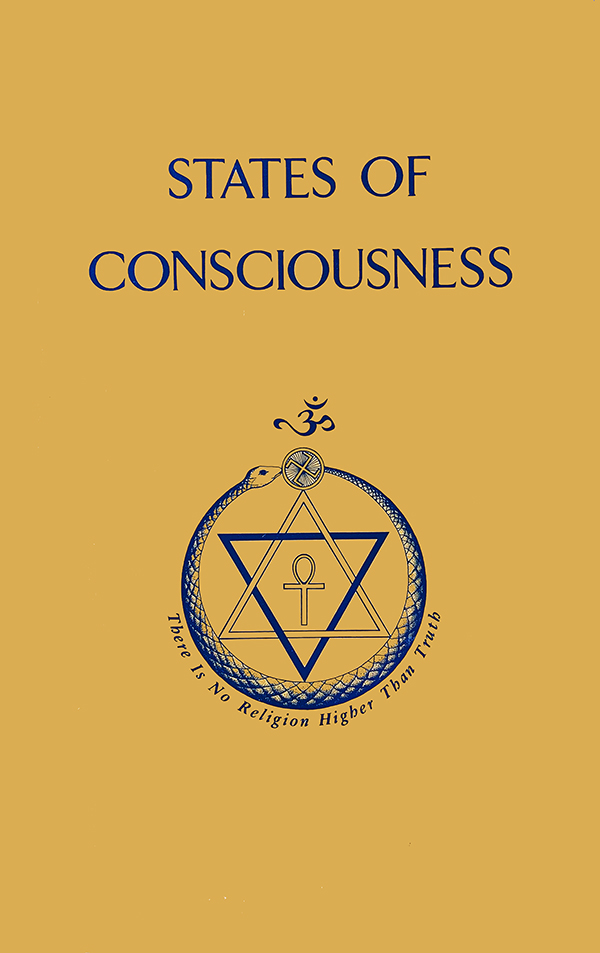
STATES OF CONSCIOUSNESS
Sixteen probing essays examine the fundamental nature of consciousness in the cosmos and in man, and indicate the vast array of potentials and capacities hidden within human awareness. Stressing the pertinence of meditation to the awakening of deeper consciousness, spiritual discipline is emphasized in the context of universal evolution and enlightenment through self-emancipation.
THE MYSTERY OF THE AVATAR
Beginning with “The Vision of the Divine Dance” from the Karma Purana Samhita, this collection of essays begins to unfold the complex metaphysical doctrine of the Avatar and the decisive impulse given to human evolution. “The Flute of Krishna” from Hermes shows how every authentic quest is a way of approaching the Avatar and points to the Bhagavad Gita as a quintessential guide on the path of spiritual devotion.
Six articles by Helena Petrovna Blavatsky seek to unravel the mystery of the Avatar. “The Doctrine of Avataras” sets forth the complexities of the concept of the Avatar and shows that all Avatars are ultimately one in their divine source. “The Seven Principles” and “The Mystery of Buddha” provides the broader perspective in which Gautama Buddha’s spiritual mission recurs and ramifies through the centuries. “An Unpublished Discourse of Buddha” and “Nirvana-Moksha” point to the exalted states of consciousness attained by those who achieve self-conscious immortality.
“Between Heaven and Earth” links the Avataric impulse with the unwritten history of human evolution and invites the intuitive to participate in the redemption of sullied consciousness and the laying down of the philosophical foundations of the noetic civilization of the future.
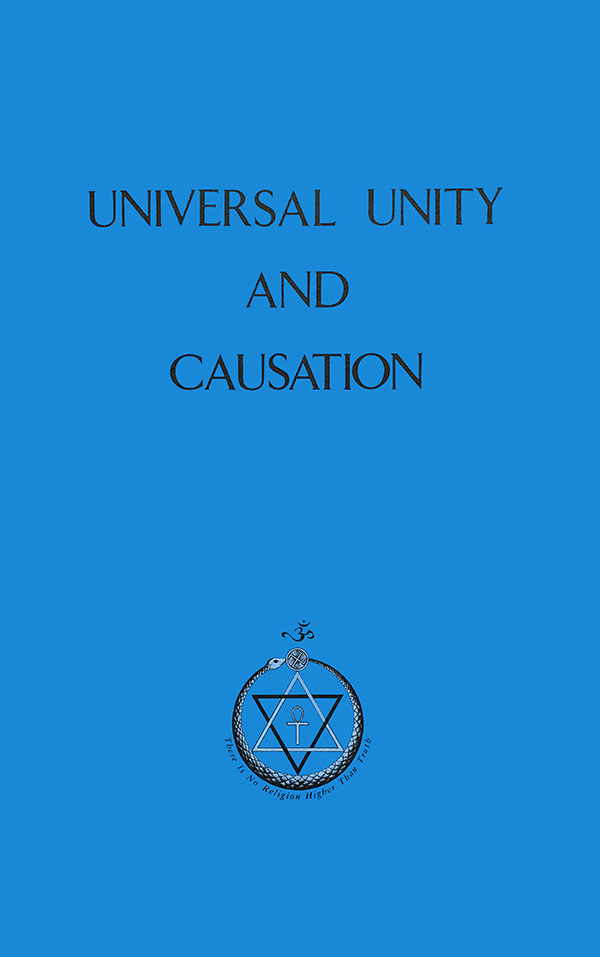
UNIVERSAL UNITY AND CAUSATION
Universal Unity and Causation consists of eight essays which elucidate the central and enduring theme of Theosophia, the living omnipresent reality of the boundless unity of Deity, humanity and every kingdom of cosmic and terrestrial nature, of All in All. Seminal extracts from The Secret Doctrine, the Transactions of the Blavatsky Lodge and The Key to Theosophy by H.P. Blavatsky are followed by keys to the study and challenge of spiritual science by W.Q. Judge, an insightful linking of Buddhist and Vedanta philosophy by D.K. Mavalankar and a compelling call to awakening to the ever-present law of correspondences by Robert Crosbie. All is crowned by the synthetic continuity of the gods of religion, the monads of philosophy and the atoms of science as articulated in the final, masterful and inspiring essay drawn from the pages of the journal HERMES.
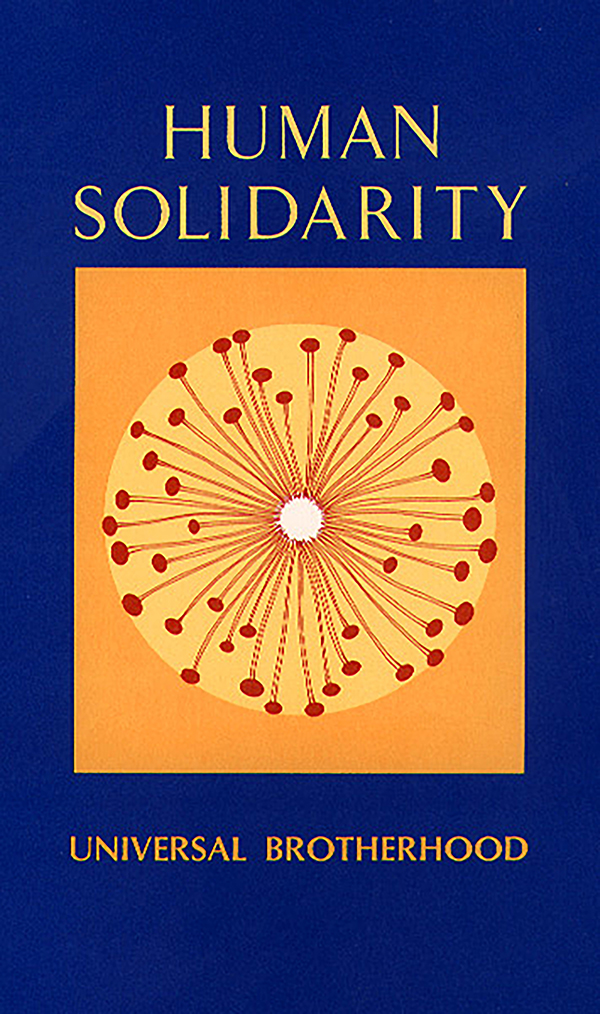
HUMAN SOLIDARITY
Eight important essays examine the problems and prospects of human solidarity. “The Brotherhood of Humanity” sets forth the essential requirements for universal brotherhood as well as the present predicament of the intelligentsia and the masses. “Christendom and Islam”, written in 1880 by a Turkish effendi, considers the convergence of worldviews and indicates the immense degradation resulting from the inversion of spiritual and ethical standards. In “The Fall of Ideals” H.P. Blavatsky links the turmoil of recent centuries with the suppression of human freedom and the aberrations of Promethean defiance. W.Q. Judge, in “Points of Agreement in All Religions” and “How Should We Treat Others?”, shows the roots of human solidarity and their concrete implications in daily life. The volume concludes with “Nepenthe”, a stirring extract from Percy Bysshe Shelley’s Prometheus Unbound.

DEATH AND IMMORTALITY
Twelve illuminating essays treat the subject of death and the prospect of conscious immortality for every human being. “The Post Mortem States” and “The Sutratma” by H.P. Blavatsky indicate the complex aftermath of physical death and the principle of monadic continuity that determines involuntary and voluntary reincarnation. “The Desire to Live” indicates the tenacity of tanha, the craving for embodied existence. “Adeptship” and “Individuality and Nirvana” by D.K. Mavalankar examine the conditions necessary for attaining nirvana and dispel common misconceptions.
“The Sheaths of the Soul” and “Upanishads on Rebirth” by W.Q. Judge consider the diverse causes of involuntary-incarnation. “Kamaloka and Devachan” and “Time in Devachan” provide a detailed account of the post mortem states experienced by most individuals.
K.S. Lakshminarayan concludes the volume with “Death and Immortality”, a lucid exposition of Tibetan Buddhist concepts of immortality and rebirth.
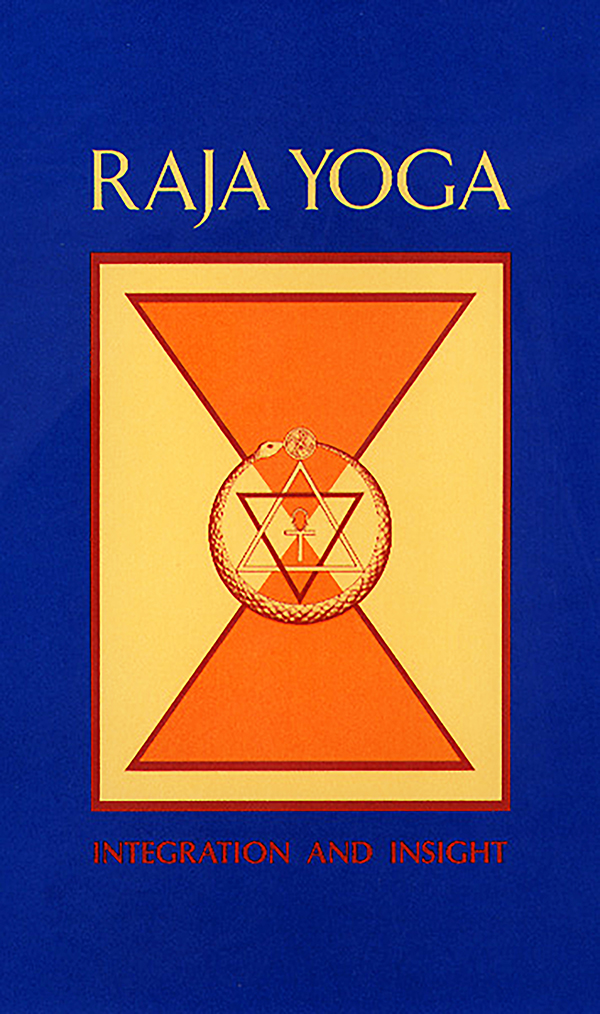
RAJA YOGA
Raja Yoga consists of eight essays on the most exalted and exacting form of yoga. “Psychic and Noetic Action” by H.P. Blavatsky sets forth the fundamental distinction between creative and imitative consciousness in terms of volition and response, intuitive insight and passive suggestibility. “Occultism Versus the Occult Arts” shows the vital difference between developing psychic powers and gaining spiritual wisdom, and “Chelas and Lay Chelas” and “Practical Occultism” indicate the mental and moral preparation needed to tread the path of Raja Yoga.

